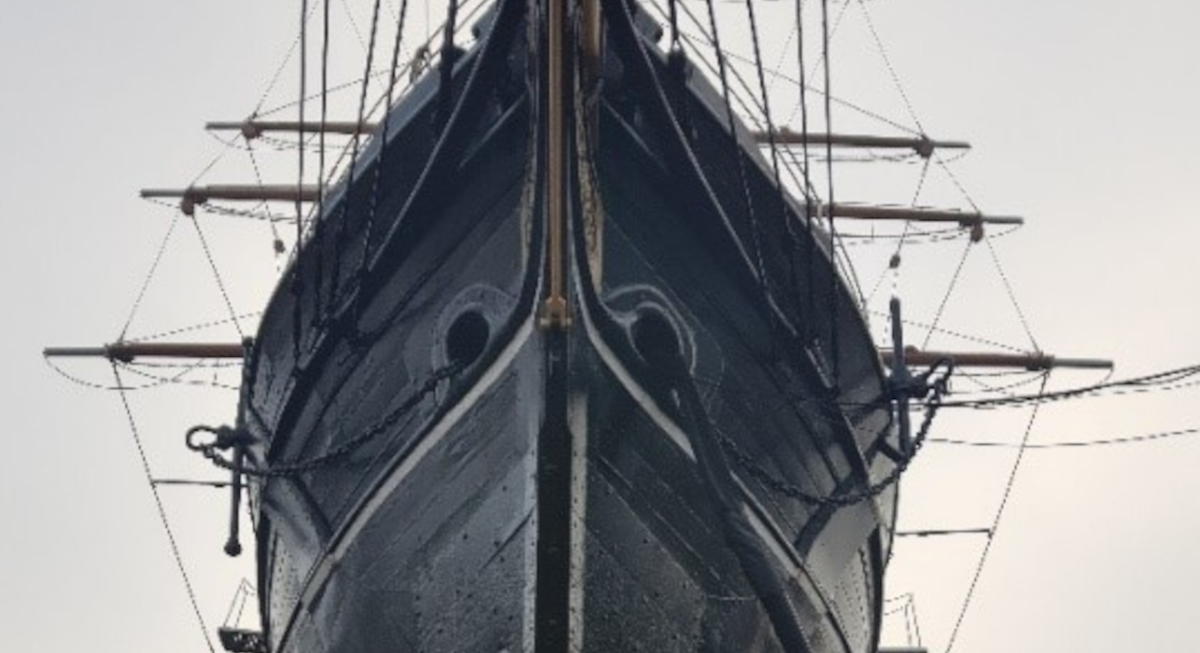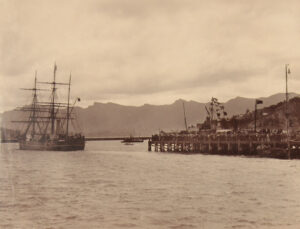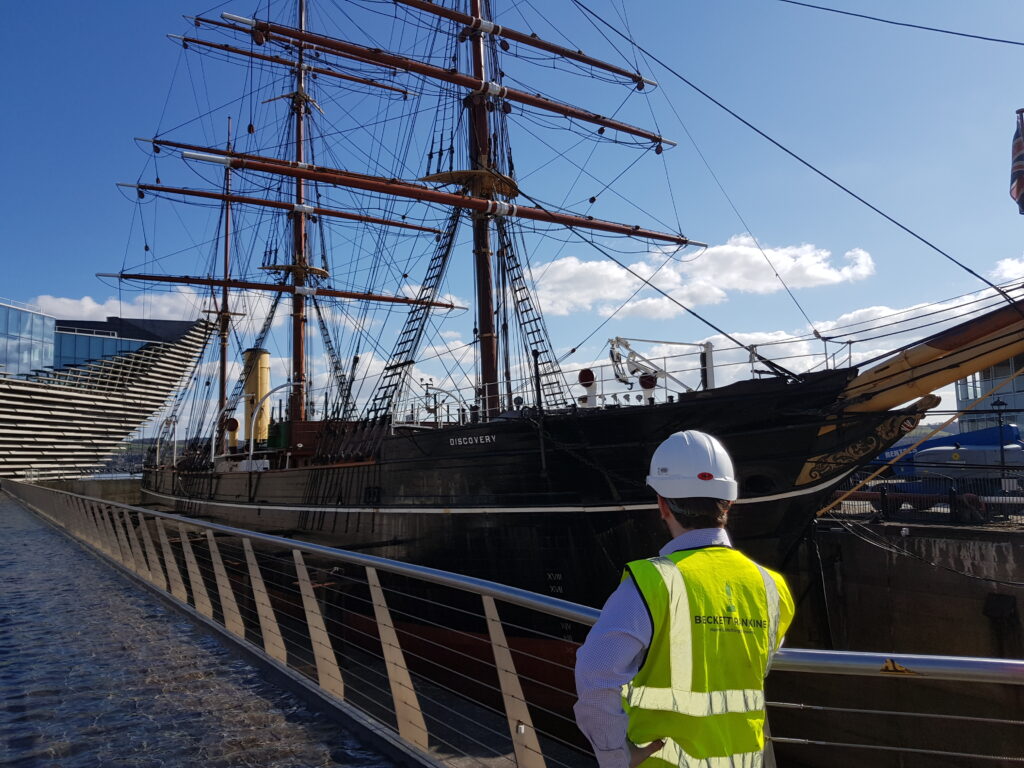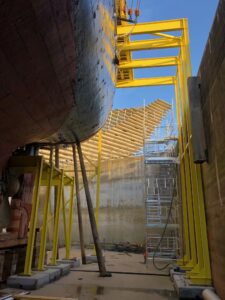
RRS Discovery is an iconic vessel in the UK’s historic ships collection, described as ‘the jewel in the crown of Dundee’s historic waterfront’.
Since being appointed to manage the ship’s preservation in 2020, Beckett Rankine has created RRS Discovery’s long-term conservation plan. Informed by continual surveys and detailed assessments, the plan is used to guide the management of ongoing maintenance works, ensuring that high standards are met to protect the ship’s future.
We have then been re-appointed as project manager and supervisor for each phase of the restoration in 2023 and 2026.
RRS Discovery is an auxiliary barque built in Dundee and the first ship designed specifically for Antarctic research. The voyages of its colourful career significantly advanced scientific knowledge, including its first mission where Robert Falcon Scott and Ernest Shackleton charted Antarctica’s land mass for the first time.
In addition to further Antarctic expeditions throughout her active service, Discovery also became the first Royal Research Ship, carrying out oceanographic surveys that led to the creation of the National Oceanographic Centre (NOC).
At over 120 years old, Discovery is one of the UK’s last surviving three-masted wooden ships and one of the last surviving ships from the Heroic Age of Antarctic Exploration. The vessel was unique in design, featuring a lifting propeller and rudder and the ability for the ship to still be steered and steamed if the rudder post was lost.
RRS Discovery returned to Dundee in 1986. A dock was purpose-built in 1992, where Discovery has remained on public display ever since.

Now 125 years old, RRS Discovery is showing signs of age with the ongoing deterioration needing urgent assessment and repair.
Dundee Heritage Trust appointed Beckett Rankine to perform a comprehensive structural inspection in 2020. This included the integrity of the hull and deck, with special attention to the stern timbers, portside timbers and bulwarks, and stem of the vessel. Although there were some areas needing attention, the ship was found to be in good condition overall.
The inspection was then used as a foundation for an optioneering study for conservation and interpretation options. Options included plans that ranged from permanently drydocking the vessel, creating a permanent climate-controlled environment, or repairing and re-floating the vessel using her own hull.
We worked closely with the client and key stakeholders to produce a conservation plan that would restore RRS Discovery sympathetically, balancing costs, safety, and the evolution of the ship’s role in Dundee’s maritime museum.
The project is supported by the National Heritage Memorial Fund, with the first phase receiving a £1.4 million funding grant for urgent structural repairs to the stern and to repair the vessel’s deck, to safeguard the ship from further deterioration.
The second phase is expected to cost in excess of £2 million, and is generously supported by the National Lottery Heritage Fund, the Tay Cities Region Deal, the Northwood Charitable Trust, the Headley Trust, and others.
A key aspect of the long-term conservation plan includes comprehensive training and support for all those who maintain Discovery¸ ensuring the relevant skills are available to keep the ship in good condition.

As the last ship of its kind in the UK, Discovery requires a specialist approach at every step of the restoration – a challenging ask when shipbuilding methods have drastically changed in the century since its launch. Shipwrights with the necessary skills and experience to work on large timber ships are extremely rare.
Beckett Rankine carried out a thorough tendering process to onboard contractor JPS Restoration & Consulting Ltd and bring Discovery back to its former glory. The specialists were selected for their experience and high-quality results that use a combination of traditional and innovative shipwrighting methods.
During the first phase – which focused on conserving areas of the deck and stern most requiring attention – traditional methods such as caulking, steam bending and blacking were used. These are all endangered skills, and so the project is also documenting these traditional techniques for their preservation and to share with future generations.
The next phase will focus on repairing or replacing the bulwark and stanchions. Starting at the stern, work on the port hull will take place section by section to identify and repair any further areas requiring attention. Once completed, the entire hull will be assessed before being freshly caulked and painted.
In order to safely repair the vessel, JPS Restoration took an innovative approach during the first phase to support the stern with a comprehensive, temporary steel structure. This novel method increased the amount of original fabric that could be retained, allowing for a more sympathetic restoration.
Following this, DHT has decided to instruct the team to design a permanent, fully supportive cradle for the vessel, which will greatly benefit the ongoing restoration and increase the vessel’s longevity.

In 2024, a historic moment occurred when Discovery’s rudder was lifted so that its well could be used to support the steel structure. The oak rudder was lifted in a single piece, ready to be carefully repaired and preserved until it can be reinstated.
RRS Discovery’s rudder being carefully lifted by JPS Restoration